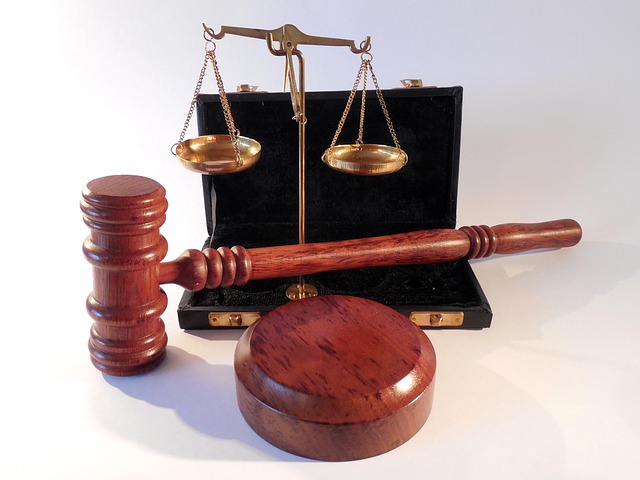C-Level investigations and criminal appeals involve meticulous reviews of records, policies, communications, evidence gathering, interviewing, data analysis, and legal arguments to protect corporate interests and ensure fair justice. Understanding the process, including how to file an appeal in a criminal case, is vital for executives and businesses facing white-collar or economic crime charges, as demonstrated by real-world success stories. Experienced attorneys guide clients through specific steps like reviewing trial records, preparing briefs, adhering to deadlines, and gathering robust evidence to seek justice and potentially overturn convictions.
“Uncover the intricacies of C-Level investigations with our comprehensive guide, designed to demystify the process for business leaders and legal professionals. Learn when and why launching a criminal appeal is crucial, exploring key criteria and considerations. From navigating complex legal procedures to effectively gathering evidence, this article equips you with insights on ‘How to File an Appeal in Criminal Case’. Discover success stories and real-world examples that highlight the potential outcomes of strategic appeals.”
- Understanding C-Level Investigations: A Comprehensive Guide
- When to Launch an Appeal: Criteria and Considerations
- Navigating Legal Procedures for Criminal Appeals
- Gathering Evidence: Supporting Your Case Effectively
- Success Stories: Real-World Examples of Appeal Outcomes
Understanding C-Level Investigations: A Comprehensive Guide

C-Level investigations refer to thorough inquiries conducted at the highest executive level within an organization, often involving complex legal and ethical considerations. These probes are designed to uncover potential wrongdoings, frauds, or misconduct by top management, including CEOs, CFOs, and COOs. A C-Level investigation typically entails a meticulous review of financial records, corporate policies, and internal communications, requiring expertise in both law and business operations.
Understanding the process is crucial for executives and respective businesses aiming to protect their interests. It involves multiple stages: gathering evidence, interviewing key personnel, analyzing data, and making recommendations. An unprecedented track record of successful investigations has emphasized the importance of such measures in avoiding indictment and maintaining public trust. Moreover, knowing how to file an appeal in a criminal case is an integral part of this process, ensuring that individuals have recourse if they believe their rights have been violated during the investigation.
When to Launch an Appeal: Criteria and Considerations

Knowing when to launch an appeal in a criminal case is a critical decision for anyone involved in a legal battle, especially those facing white-collar and economic crime charges. The criteria and considerations surrounding appeals are multifaceted and depend on various factors unique to each case. An unprecedented track record of successful defenses can influence the strategy, as experienced attorneys understand the nuances of navigating complex legal landscapes.
The process involves a thorough review of the original trial, identifying potential errors or omissions that could have impacted the outcome. This includes examining evidence presentation, witness testimonies, and legal arguments. How to File an Appeal in Criminal Case becomes evident through a systematic analysis of these elements. It requires a delicate balance between advocating for the accused’s rights and ensuring a fair and just legal process.
Navigating Legal Procedures for Criminal Appeals

Navigating legal procedures for criminal appeals is a complex process that requires meticulous attention to detail. Individuals who have been convicted and seek to challenge their verdicts must understand the specific steps involved in filing an appeal. This includes gathering relevant evidence, preparing comprehensive legal briefs, and adhering to stringent deadlines set by the court system. Across the country, experienced legal professionals play a pivotal role in guiding their clients through this intricate process, aiming for winning challenging defense verdicts.
The process begins with a thorough review of the trial record to identify potential errors or miscarriages of justice. Once these issues are pinpoint, lawyers craft compelling arguments and file formal appeal documents within the stipulated time frame. Throughout this journey, it’s crucial to maintain open communication between the client and their legal representative to ensure all concerns and questions are addressed promptly. By following these procedures diligently, individuals have a chance to seek justice and potentially overturn their criminal convictions.
Gathering Evidence: Supporting Your Case Effectively

Gathering evidence is a crucial step in any legal process, especially when launching C-Level investigations. It’s essential to collect and present facts that support your case effectively. One common scenario where robust evidence gathering plays a pivotal role is in navigating how to file an appeal in a criminal case. Across the country, successful appeals often hinge on uncovering new or previously overlooked evidence that could significantly impact the outcome.
During investigations, it’s vital to consider both direct and circumstantial evidence. Direct proof, like witness testimonies, can be powerful, while circumstantial evidence, such as forensically sound analyses, may provide a compelling narrative. In preparation for jury trials, ensuring your evidence is well-documented, reliable, and relevant is key to building a strong argument. This includes meticulously documenting the chain of custody for all physical evidence and corroborating witness statements with supporting documentation.
Success Stories: Real-World Examples of Appeal Outcomes

When navigating a criminal case, understanding how to file an appeal can be pivotal for achieving justice. Success stories from real-world examples highlight the power of appeals in correcting legal errors and ensuring fairness. Many have seen positive outcomes, ranging from reduced sentences to complete dismissals, thanks to meticulous legal strategies focused on procedural mistakes or new evidence.
These cases not only showcase the effectiveness of appeals but also underscore the importance of a robust general criminal defense strategy. Philanthropic and political communities often benefit from these successes, as they promote transparency and accountability in the justice system. Moreover, each appeal serves as a testament to the resilience of the respective business against wrongful convictions, reinforcing the necessity of thorough legal representation at every stage of the criminal process.
Understanding C-level investigations and navigating legal procedures for criminal appeals is a complex yet crucial process. By adhering to clear criteria, gathering compelling evidence, and learning from success stories of real-world examples, individuals can effectively file an appeal in their criminal case. Remember that each step requires meticulous attention to detail, strategic planning, and a solid understanding of the law. With the right approach, there is hope for a favorable outcome, ensuring justice is served.






